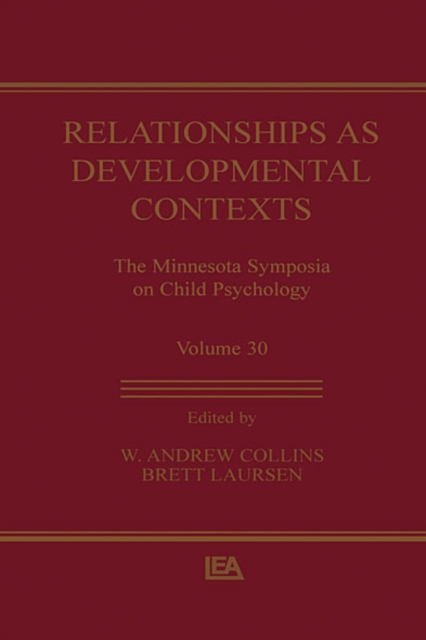
Relationships as Developmental Contexts : The Minnesota Symposia on Child Psychology, Volume 30 EPUB
Edited by W. Andrew Collins, Brett Laursen
Part of the Minnesota Symposia on Child Psychology Series series
EPUB
Description
The volume's topic was chosen in part because of the rapidly growing salience of dyadic research perspectives in developmental psychology, but also in social psychology and in fields such as communication and family studies. It provides the most complete representation now available on current theory and research on the significance of personal relationships in child and adolescent development. This volume addresses the ways in which the study of social development has been altered by an emphasis on research questions and techniques for studying children and adolescents in the context of their significant dyadic relationships. Leading scholars--many of them pioneers in the concepts and methods of dyadic research--have contributed chapters in which they both report findings from recent research and reflect on the implications for developmental psychology. Their work encompasses studies of relationships with parents, siblings, friends, and romantic partners. Opening chapters set the stage by describing the key characteristics of social-development research from a dyadic perspective and outlining key themes and contemporary issues in the field. It concludes with commentaries from distinguished senior scholars identifying important directions for future research.
Information
-
Download - Immediately Available
- Format:EPUB
- Pages:384 pages
- Publisher:Taylor & Francis
- Publication Date:01/03/1999
- Category:
- ISBN:9781135685317
Information
-
Download - Immediately Available
- Format:EPUB
- Pages:384 pages
- Publisher:Taylor & Francis
- Publication Date:01/03/1999
- Category:
- ISBN:9781135685317










